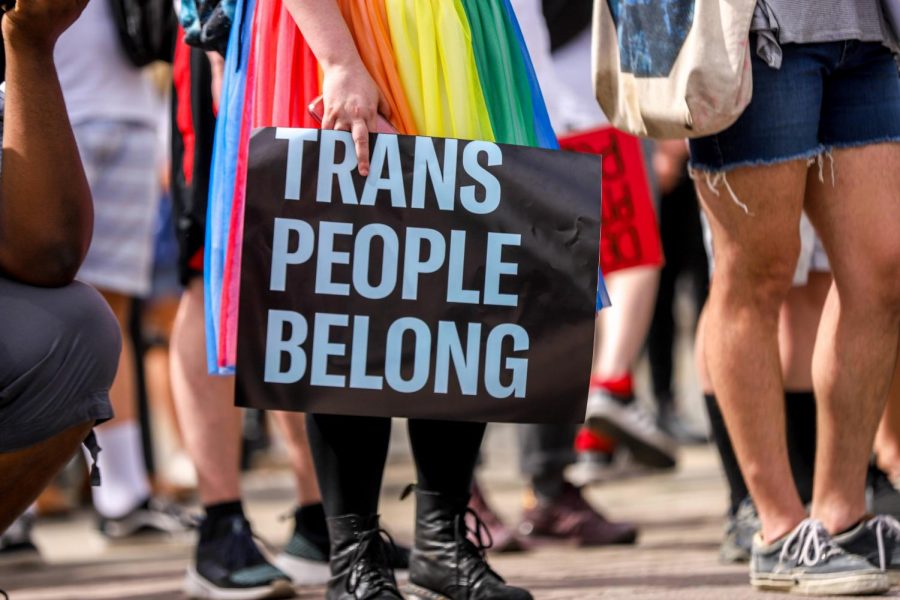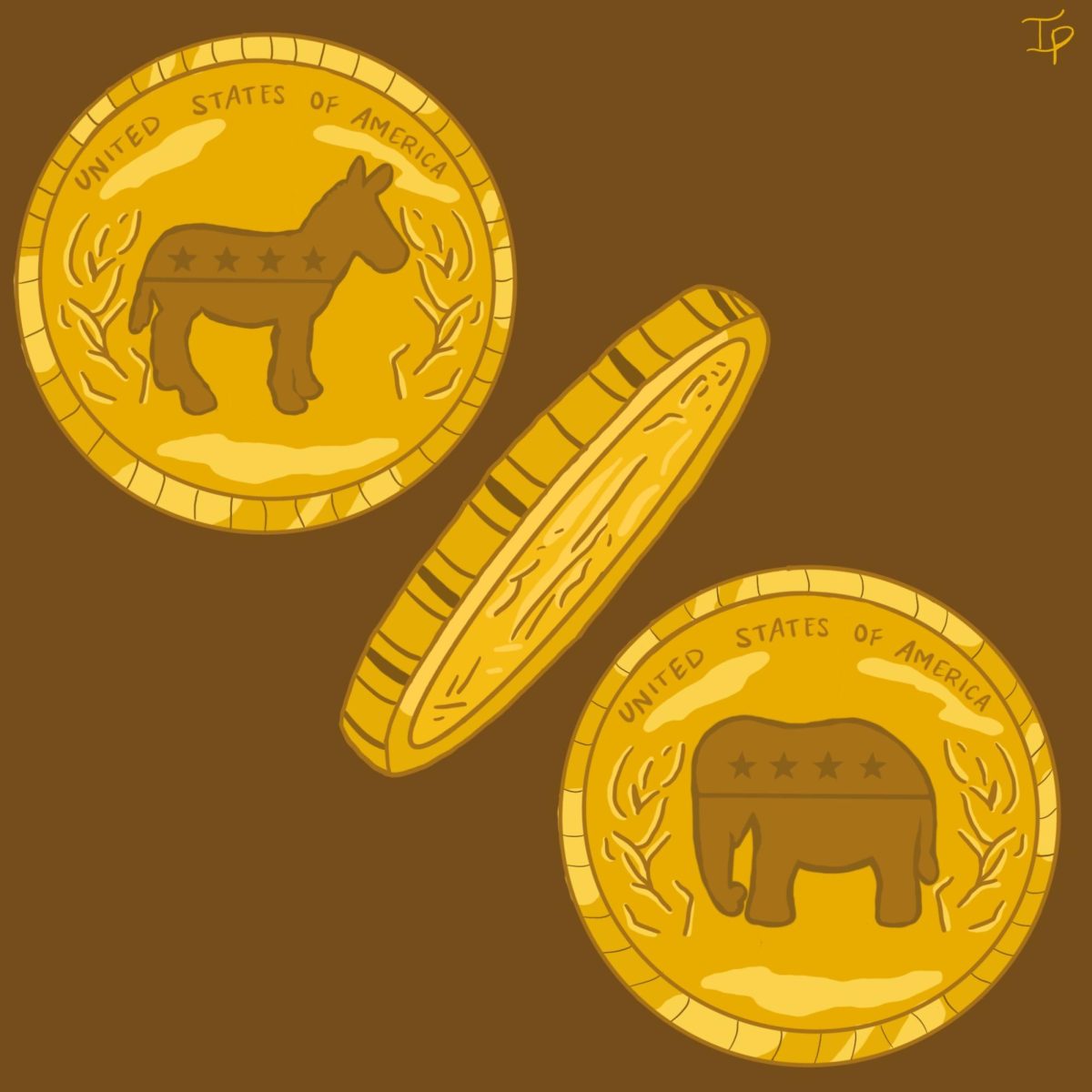Editorial | In absence of Pride, we should listen to our activists
Kaycee Orwig | Assistant Visual Editor
A protester holds a “Trans People Belong” sign during a June protest for Black trans lives.
August 25, 2020
The Delta Foundation, which runs the region’s largest annual Pride celebration, announced on Aug. 10 that it would cancel its Pride celebration in Pittsburgh this year due to the ongoing COVID-19 pandemic. Pride was originally set for July, and then later postponed to October.
The foundation then announced Sunday that, due to lost revenue from Pride’s cancellation, it would dissolve altogether. This announcement was good news for many members of the LBGTQ+ community in Pittsburgh. The Delta Foundation has been the center of numerous scandals in the LGBTQ+ community over the years — particularly for not adequately supporting Black and trans folk and whitewashing Pride. Delta’s dissolution provides an opportunity for Pride in our local LGBTQ+ community to start anew.
For quite some time, local Black activists especially have felt that Delta Foundation was broken beyond repair. We should take this year, in the absence of a physical Pride parade, to reflect on what Pride really is, and what it should be from here on out. We should listen to our local activists when deciding how to move forward as a community.
Gary Van Horn, the foundation’s former head, was charged for forgery and impersonation of an Allegheny County sheriff’s deputy in December 2019. But the foundation’s controversial actions run much deeper than Van Horn himself. The Delta Foundation has been spurring anger from many local LGBTQ+ activists for years, starting in 2015 when Delta tried to book the rapper Iggy Azalea — who had previously made homophobic comments — for its Pride celebration. It also accepted sponsorship in 2017 from an energy company that has donated consistently to anti-LGBTQ+ politicians.
Shortly before the 2019 Pride celebration, the Delta Foundation posted a link on its Facebook page of a T-shirt that said “LGBTQ for Trump.” The post asked if anyone would be wearing the shirt and linked readers to President Donald Trump’s official merchandise sales website. The post came on the same day the Trump administration rolled back anti-discrimination health care protection for transgender people, and shortly after the administration re-banned trans folk from serving in the military.
When this happened, people of color began to come forward and say they’d felt for some time that Delta Foundation was not promoting intersectionality in the LGBTQ+ community.
“Color me not shocked,” local activist Brittani Murray told Pittsburgh City Paper. “As a Pan Black woman in this city, I’ve seen cowardice a time or two. Folks have been trying to silence me and Black womxn across multiple intersections. My ancestors never quit and neither will I until they stop milking our community for handouts while selling us out to corporations that routinely give money to legislators that oppose our very existence.”
Commentary from people such as Murray went mostly unnoticed at large — though People’s Pride, hosted by SisTers PGH, was created a few years ago as a more inclusive and intersectional alternative to Delta’s. But still, Delta Foundation continued to host the City’s larger celebration, indicating that much of the Pittsburgh community wasn’t listening to its activists or paying attention to the lack of intersectionality so crucial to Pride’s core.
Black trans activists protested in Pittsburgh last week calling for abolishment of the Delta Foundation. The activists said the new foundation president, Martin Healy, hadn’t been cooperating with them since his appointment. The Delta Foundation had been having closed meetings and not including Black trans activities in any of the foundation’s decisions.
The LGBTQ+ community is a community, which means that when the groups who are impacted the most by discrimination are helped, we all are. Pride is about accepting and listening to each other. We should take this opportunity to listen to the activists in our community — specifically those who are Black and trans.




